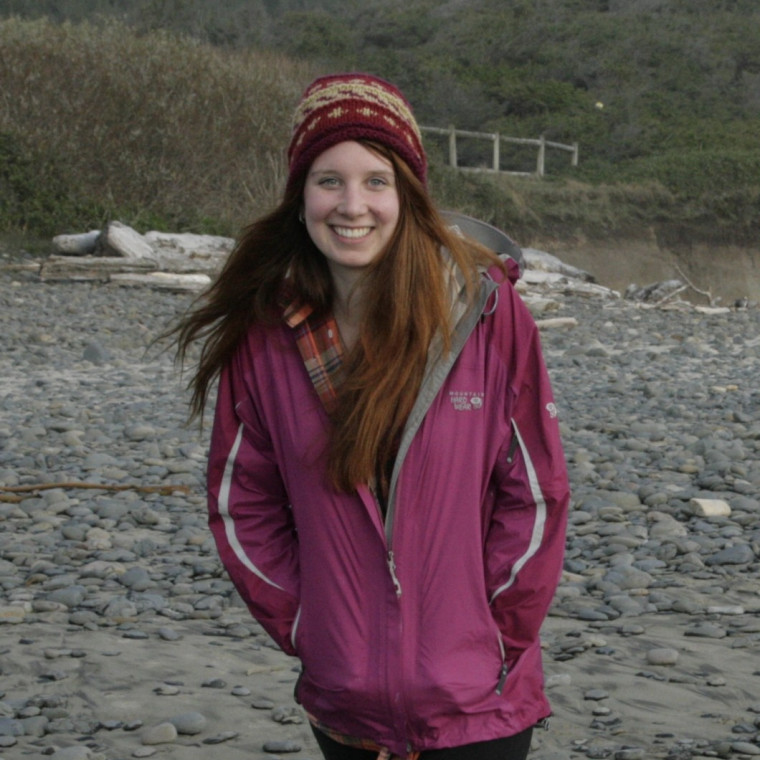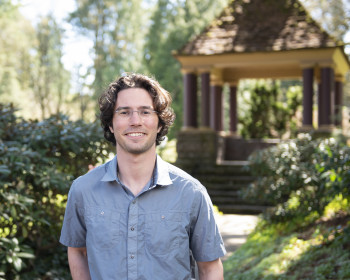Summer student research: Food and traditional medicine
Claire Hinkley ’15 has been working with Assistant Professor of Anthropology Sepideh Bajracharya to study food’s role in a system of traditional medicine. She reflects on this experience in the following Q&A.
Open gallery

Lewis & Clark students remain closely engaged with their fields of study during the summer months, and many make meaningful contributions to scholarship by collaborating with faculty on innovative research.
Claire Hinkley ’15 has been working with Assistant Professor of Anthropology Sepideh Bajracharya to study food’s role in a system of traditional medicine. She reflects on this experience in the following Q&A.
What are you researching?
I am investigating the complex relationship between Ayurveda, food, and the self. Ayurveda is a system of Hindu traditional medicine that enforces an inextricable connection between the mind and the body.
What initially sparked your interest in this project, and how does it relate to your previous coursework?
Last fall, I took Professor Bajracharya’s Medicine, Culture, and Healing course. It was my introduction to different global perspectives on illness and health, all of which I found to be fascinating.
How has your Lewis & Clark education been enhanced by close collaboration with faculty?
I feel more connected to my discipline and to higher education as a whole. Being part of high level discussions that push the boundaries of new ideas is really exciting. I feel like I’ve started graduate school before even beginning my final year of undergraduate study.
Does your research have potential to be applied in the real world or to influence other work in your field?
I believe that we are engaging in an interdisciplinary dialogue with other contemporary scholars about consumption, exchange theory, the extended mind, and ethics of the self within the Ayurvedic system. The ideas we are exploring will hopefully stimulate further study of how these diverse topics interact.
How will this research experience hopefully impact your future studies or professional pursuits?
As a sociology and anthropology major, I am interested in focusing my senior thesis on food. Thus, many of our readings and discussions will continue to benefit me throughout the coming year.
About the Mellon Foundation
The Andrew W. Mellon Foundation allows students to pursue graduate-level research in the humanities and social sciences. This summer, more than 20 students are being sponsored to study such topics as pop culture and national identity in Mexico, immigration of Russian speakers to Oregon, and social mobility among peasants of medieval England. They are conducting research on campus and at diverse sites around the world.
“We firmly believe that engaging students in the practice of their discipline is the best way to prepare them for life beyond the college,” said Jerusha Detweiler-Bedell, interim dean of the College of Arts and Sciences. “Student-faculty research is seen as one of the strengths of our educational experience, and with this grant, we can ensure that students have access to opportunities for collaboration.”
By supporting these endeavors, the Mellon Foundation continues its long legacy of enriching scholarly and curricular offerings at Lewis & Clark.
Katrina Staaf ’16 contributed to this story.
More Newsroom Stories
Public Relations is located in McAfee on the Undergraduate Campus.
MSC: 19
email public@lclark.edu
voice 503-768-7970
Public Relations
Lewis & Clark
615 S. Palatine Hill Road MSC 19
Portland OR 97219

